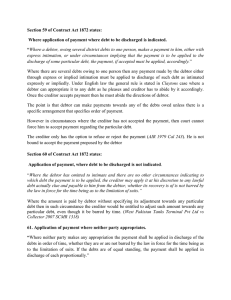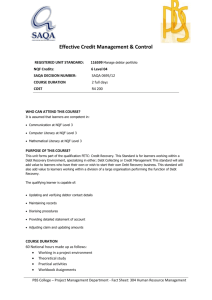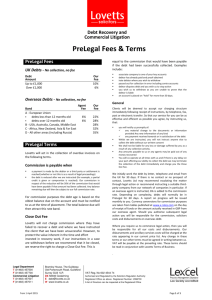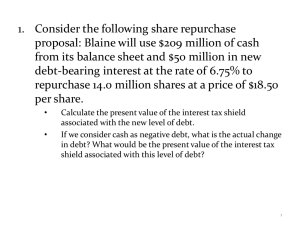Magna Carta Clauses Part 1
advertisement
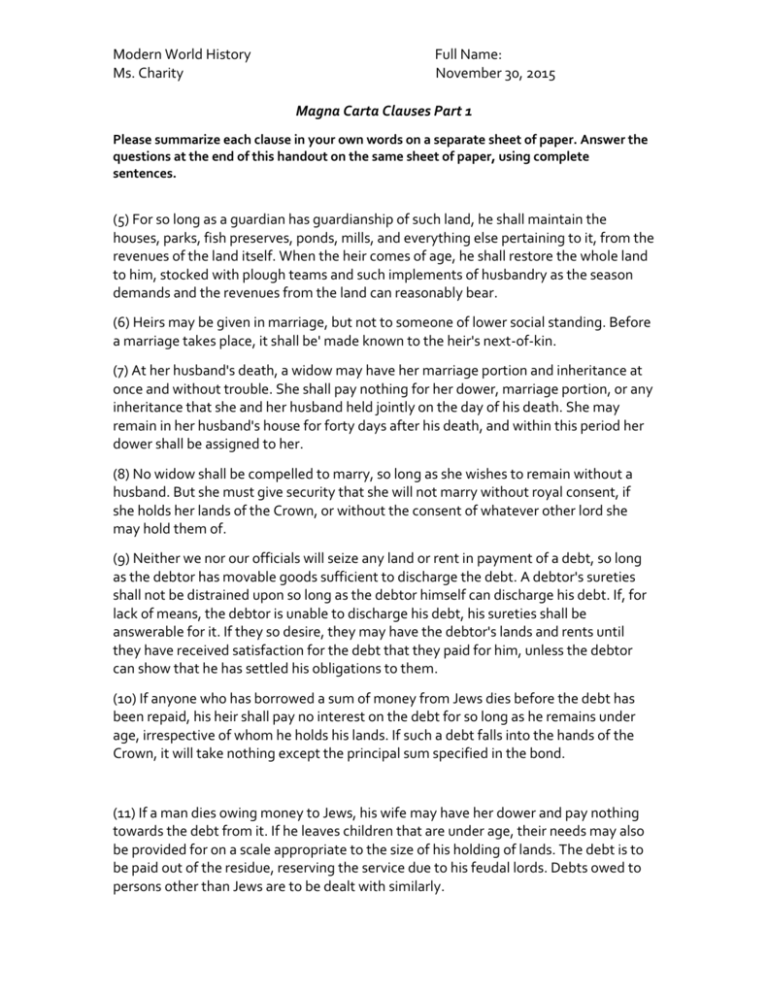
Modern World History Ms. Charity Full Name: November 30, 2015 Magna Carta Clauses Part 1 Please summarize each clause in your own words on a separate sheet of paper. Answer the questions at the end of this handout on the same sheet of paper, using complete sentences. (5) For so long as a guardian has guardianship of such land, he shall maintain the houses, parks, fish preserves, ponds, mills, and everything else pertaining to it, from the revenues of the land itself. When the heir comes of age, he shall restore the whole land to him, stocked with plough teams and such implements of husbandry as the season demands and the revenues from the land can reasonably bear. (6) Heirs may be given in marriage, but not to someone of lower social standing. Before a marriage takes place, it shall be' made known to the heir's next-of-kin. (7) At her husband's death, a widow may have her marriage portion and inheritance at once and without trouble. She shall pay nothing for her dower, marriage portion, or any inheritance that she and her husband held jointly on the day of his death. She may remain in her husband's house for forty days after his death, and within this period her dower shall be assigned to her. (8) No widow shall be compelled to marry, so long as she wishes to remain without a husband. But she must give security that she will not marry without royal consent, if she holds her lands of the Crown, or without the consent of whatever other lord she may hold them of. (9) Neither we nor our officials will seize any land or rent in payment of a debt, so long as the debtor has movable goods sufficient to discharge the debt. A debtor's sureties shall not be distrained upon so long as the debtor himself can discharge his debt. If, for lack of means, the debtor is unable to discharge his debt, his sureties shall be answerable for it. If they so desire, they may have the debtor's lands and rents until they have received satisfaction for the debt that they paid for him, unless the debtor can show that he has settled his obligations to them. (10) If anyone who has borrowed a sum of money from Jews dies before the debt has been repaid, his heir shall pay no interest on the debt for so long as he remains under age, irrespective of whom he holds his lands. If such a debt falls into the hands of the Crown, it will take nothing except the principal sum specified in the bond. (11) If a man dies owing money to Jews, his wife may have her dower and pay nothing towards the debt from it. If he leaves children that are under age, their needs may also be provided for on a scale appropriate to the size of his holding of lands. The debt is to be paid out of the residue, reserving the service due to his feudal lords. Debts owed to persons other than Jews are to be dealt with similarly. Modern World History Ms. Charity Full Name: November 30, 2015 (12) No `scutage' or `aid' may be levied in our kingdom without its general consent, unless it is for the ransom of our person, to make our eldest son a knight, and (once) to marry our eldest daughter. For these purposes ouly a reasonable `aid' may be levied. `Aids' from the city of London are to be treated similarly. (13) The city of London shall enjoy all its ancient liberties and free customs, both by land and by water. We also will and grant that all other cities, boroughs, towns, and ports shall enjoy all their liberties and free customs. (15) In future we will allow no one to levy an `aid' from his free men, except to ransom his person, to make his eldest son a knight, and (once) to marry his eldest daughter. For these purposes only a reasonable `aid' may be levied. (16) No man shall be forced to perform more service for a knight's `fee', or other free holding of land, than is due from it. (20) For a trivial offence, a free man shall be fined only in proportion to the degree of his offence, and for a serious offence correspondingly, but not so heavily as to deprive him of his livelihood. In the same way, a merchant shall be spared his merchandise, and a husbandman the implements of his husbandry, if they fall upon the mercy of a royal court. None of these fines shall be imposed except by the assessment on oath of reputable men of the neighbourhood. (21) Earls and barons shall be fined only by their equals, and in proportion to the gravity of their offence. (22) A fine imposed upon the lay property of a clerk in holy orders shall be assessed upon the same principles, without reference to the value of his ecclesiastical benefice. (23) No town or person shall be forced to build bridges over rivers except those with an ancient obligation to do so.



